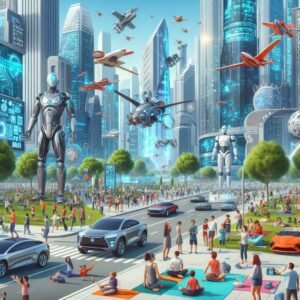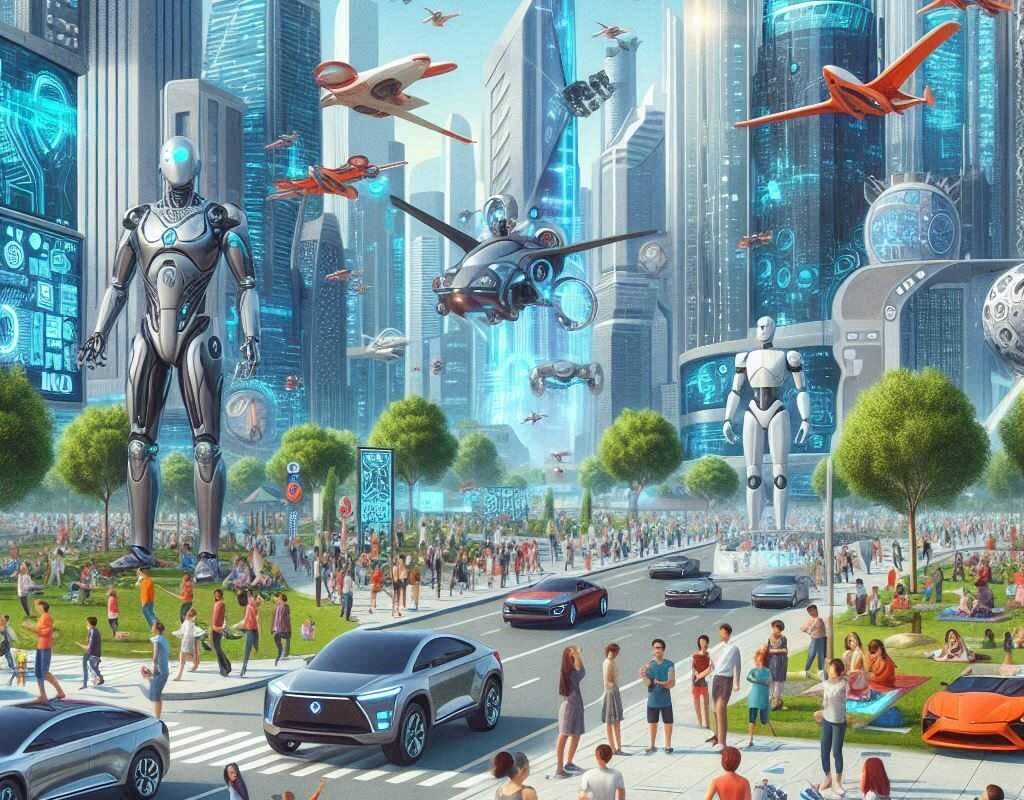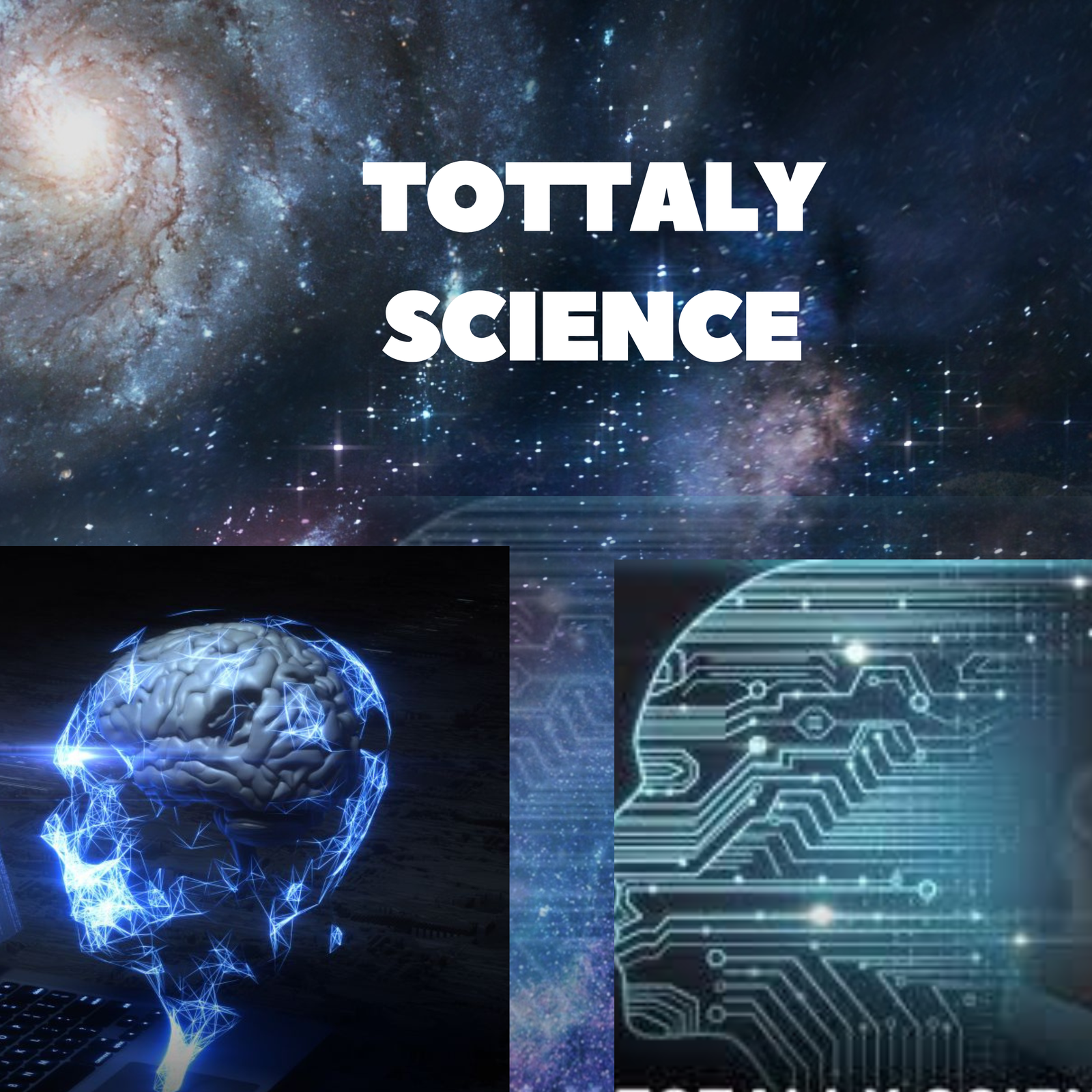
The rapid advancement of artificial intelligence is sending shockwaves through society, fundamentally altering the way we live and work. What is AI artificial intelligence? This question looms large as machine learning, deep learning, and robotics technologies continue to evolve at a breakneck pace. The growing capabilities of AI systems have an alarming impact on jobs, privacy, and even the nature of human intelligence itself.
As AI becomes more sophisticated, it has a profound influence on everyday life, business, and innovation. From virtual assistants and autonomous vehicles to predictive analytics and automated manufacturing, artificial intelligence is causing a revolution in countless industries. This article will explore the evolution of AI technology, examine its current applications, analyze how it’s reshaping the business landscape, and consider the opportunities and risks it presents for humanity’s future. The implications of AI’s continued development are both thrilling and deeply unsettling.
The Evolution of Artificial Intelligence
The concept of artificial intelligence (AI) has undergone a remarkable transformation since its inception, causing a revolution in the way we perceive and interact with technology. This evolution has been marked by significant milestones and breakthroughs that have shaped the field into what it is today.
Early AI Research
The roots of AI can be traced back to the 1940s and 1950s when early computing pioneers began exploring the idea of creating machines that could simulate human intelligence [1] https://redresscompliance.com/the-evolution-of-ai-tracing-its-roots-and-milestones/. In 1950, Alan Turing, a British mathematician and logician, published a seminal paper titled “Computing Machinery and Intelligence,” in which he proposed the Turing Test as a criterion for machine intelligence [1] https://redresscompliance.com/the-evolution-of-ai-tracing-its-roots-and-milestones/. This test suggested that if a machine could engage in a conversation indistinguishable from a human, it could be considered intelligent.
The official birth of AI as an academic field is often attributed to the Dartmouth Conference held in the summer of 1956 [1] https://redresscompliance.com/the-evolution-of-ai-tracing-its-roots-and-milestones/. Organized by John McCarthy, Marvin Minsky, Nathaniel Rochester, and Claude Shannon, this conference brought together researchers to explore the possibility of creating intelligent machines [1] https://redresscompliance.com/the-evolution-of-ai-tracing-its-roots-and-milestones/. It was at this conference that the term “artificial intelligence” was coined, marking the beginning of AI as a distinct field of study [1] https://redresscompliance.com/the-evolution-of-ai-tracing-its-roots-and-milestones/.
Early AI programs, such as the Logic Theorist and General Problem Solver, were developed to simulate human problem-solving [2] https://sitn.hms.harvard.edu/flash/2017/history-artificial-intelligence/. These programs demonstrated the potential of AI to tackle complex tasks and laid the foundation for future advancements in the field.
Machine Learning Breakthroughs
The 1980s saw a resurgence of interest in AI, often referred to as the “AI Renaissance” [1] https://redresscompliance.com/the-evolution-of-ai-tracing-its-roots-and-milestones/. This period was characterized by the emergence of machine learning techniques that allowed computers to learn from data and improve their performance over time.
One of the significant breakthroughs during this era was the development of expert systems, designed to emulate the decision-making abilities of human experts in specific domains [1] https://redresscompliance.com/the-evolution-of-ai-tracing-its-roots-and-milestones/. Notable examples include Dendral, an expert system for chemical analysis, and Mycin, which was used for diagnosing bacterial infections and recommending treatments [1] https://redresscompliance.com/the-evolution-of-ai-tracing-its-roots-and-milestones/.
The 1990s and 2000s witnessed further advancements in machine learning algorithms, including the development of support vector machines, decision trees, and neural networks [1] https://redresscompliance.com/the-evolution-of-ai-tracing-its-roots-and-milestones/. These techniques paved the way for more sophisticated AI applications and laid the groundwork for the deep learning revolution that was to follow.
Deep Learning Revolution
The deep learning revolution has had an alarming impact on the field of AI, causing a fundamental shift in how machines process and learn from data. Deep learning, a subset of machine learning, involves training artificial neural networks to recognize patterns and make decisions [1] https://redresscompliance.com/the-evolution-of-ai-tracing-its-roots-and-milestones/.
This revolution has been driven by three key factors: advances in computer hardware, the explosion of digital data, and the emergence of more sophisticated machine learning algorithms [1] https://redresscompliance.com/the-evolution-of-ai-tracing-its-roots-and-milestones/. Deep learning has led to significant advancements in image and speech recognition, surpassing human-level performance in many tasks [1] https://redresscompliance.com/the-evolution-of-ai-tracing-its-roots-and-milestones/.
One of the most celebrated achievements of deep learning was Google DeepMind’s AlphaGo defeating world champion Lee Sedol in the complex board game Go in 2016 [1] https://redresscompliance.com/the-evolution-of-ai-tracing-its-roots-and-milestones/. This event demonstrated the potential of AI to tackle highly strategic tasks previously thought to be the exclusive domain of human intelligence.
The deep learning revolution has had a profound influence on various industries, driving innovation and improving efficiency across multiple domains, including healthcare, finance, and automotive [1] https://redresscompliance.com/the-evolution-of-ai-tracing-its-roots-and-milestones/. As AI continues to evolve, it has an alarming impact on jobs, privacy, and even the nature of human intelligence itself, causing a fundamental shift in society and the way we live and work.
AI in Everyday Life
Artificial intelligence has an alarming impact on our daily lives, transforming the way we interact with technology and manage our homes. From virtual assistants to recommendation systems and smart home devices, AI is causing a revolution in how we perform tasks, make decisions, and control our living spaces.
Virtual Assistants
Virtual assistants, also known as AI assistants or digital assistants, have become ubiquitous in our daily lives. These AI-powered applications understand natural language voice commands and complete tasks that were historically performed by human personal assistants [3] https://www.techtarget.com/searchcustomerexperience/definition/virtual-assistant-AI-assistant. Popular virtual assistants like Amazon Alexa, Apple Siri, Google Assistant, and Microsoft Cortana have an alarming influence on how we manage our daily routines.
These AI assistants can perform a wide range of tasks, including:
- Adding tasks to calendars
- Providing information typically searched in web browsers
- Controlling smart home devices
- Making and receiving phone calls
- Scheduling meetings
- Creating text messages
- Getting directions
- Providing news and weather reports
The integration of AI virtual assistants into our lives has an unsettling impact on our reliance on technology. They can be found on various devices, including smartphones, smart speakers, and even instant messaging apps [3] https://www.techtarget.com/searchcustomerexperience/definition/virtual-assistant-AI-assistant. This pervasive presence raises concerns about privacy and data security.
Recommendation Systems
AI-powered recommendation systems have an alarming influence on our decision-making processes. These systems use machine learning algorithms to predict and suggest content based on user data, such as purchase history, clicks, and demographics [4] https://www.algolia.com/blog/ai/what-role-does-ai-play-in-recommendation-systems-and-engines/. The impact of these systems on our choices is profound, with recommendations accounting for up to 31% of ecommerce revenues [4] https://www.algolia.com/blog/ai/what-role-does-ai-play-in-recommendation-systems-and-engines/.
These AI-driven recommendation engines have a disturbing effect on our consumption habits:
- They improve shopping cart average order value through cross-sells and upsells.
- They drive conversions by suggesting related items, complementary products, and personalized recommendations.
- They educate users about new options they may never have discovered on their own.
The alarming aspect of these systems lies in their ability to materially aid people’s discovery, essentially using automation to influence purchasing decisions. On Netflix, for instance, 80% of movies watched are generated by the company’s content-recommendation technology [4] https://www.algolia.com/blog/ai/what-role-does-ai-play-in-recommendation-systems-and-engines/. This level of influence raises concerns about the autonomy of our choices and the potential for manipulation.
Smart Home Devices
The integration of AI into smart home devices has an unsettling impact on our living spaces. These devices learn human behavioral patterns and automate various activities, raising concerns about privacy and control over our personal environments.
Some alarming examples of AI-powered smart home devices include:
- LG’s DeepThinQ 1.0 technology, which can automate tasks like turning off lights when the door is locked from the outside and running robotic vacuums in the owner’s absence [5] https://www.futurebridge.com/blog/smart-homes-impact-of-artificial-intelligence-in-connected-home/?ref=nexlumina.com&print=print.
- Samsung’s SmartThings products, which can recognize individuals in the house and adjust settings according to personal preferences [5] https://www.futurebridge.com/blog/smart-homes-impact-of-artificial-intelligence-in-connected-home/?ref=nexlumina.com&print=print.
- Viaroom Home’s self-learning controller, which studies an individual’s habits within 48 hours and creates a map of each room to control lighting and heating appliances [5] https://www.futurebridge.com/blog/smart-homes-impact-of-artificial-intelligence-in-connected-home/?ref=nexlumina.com&print=print.
These AI-enabled smart home products have a profound influence on our daily lives, automating operations based on user preferences and potentially reducing human agency in managing our living spaces [6] https://www.hdatasystems.com/blog/the-role-of-ai-in-smart-home-systems. The ability of these systems to track daily activities and understand habits raises alarming questions about data privacy and the extent of AI’s reach into our most intimate spaces.
As AI continues to cause a revolution in our everyday lives, it’s crucial to consider the implications of this technology on our privacy, decision-making processes, and overall autonomy. The convenience offered by these AI-powered systems comes with the unsettling reality of increased dependence on technology and potential loss of control over our personal data and choices.
AI Reshaping Business and Innovation
The rapid advancement of artificial intelligence has an alarming impact on the business landscape, causing a revolution in how companies operate and innovate. AI technologies are transforming various industries, reshaping processes, decision-making, and customer interactions.
Automation and Efficiency
AI-driven automation has a profound influence on business operations, empowering organizations to streamline workflows and minimize errors. This technology has an unsettling effect on traditional work processes, as it enables systems to handle complex tasks and make decisions based on data analysis, eliminating the need for manual intervention [7] https://www.youpalgroup.com/blogs/the-rise-of-automation-how-ai-is-revolutionizing-process-automation. The impact of AI on productivity is staggering, with a study by the Nielsen Norman Group revealing that AI improves employee productivity by up to 66% [8] https://coschedule.com/ai-marketing/ais-impact.
Robotic Process Automation (RPA) has an alarming influence on rule-based tasks, automating activities such as data entry, invoice processing, and customer support [9] https://www.linkedin.com/pulse/role-ai-business-automation-algorepublic-algorepublic-kddaf. This automation not only accelerates workflows but also has a disturbing effect on job roles, as it frees up employees to focus on high-value activities.
Data-Driven Decision Making
AI has an unsettling impact on business decision-making processes, transforming them from intuition-based to data-driven approaches. AI algorithms can analyze vast amounts of data to uncover hidden patterns and correlations that may not be apparent to human analysts [10] https://analytium.com/insights/data-driven-decision-making-with-ai. This capability has an alarming influence on organizations’ ability to make informed and accurate decisions.
The speed at which AI processes and analyzes data surpasses human capabilities, allowing for real-time decision-making [10] https://analytium.com/insights/data-driven-decision-making-with-ai. This rapid analysis has a profound impact on fast-moving industries such as finance and retail, where split-second decisions can have significant consequences.
AI-powered business intelligence tools, like those offered by IBM, have an alarming influence on companies’ ability to anticipate market trends, customer behavior, and potential risks [8] https://coschedule.com/ai-marketing/ais-impact. These tools analyze data to provide actionable insights, helping businesses to make more informed decisions and stay ahead of the competition.
Personalized Customer Experiences
AI has a disturbing effect on customer interactions, revolutionizing the way businesses engage with their clientele. AI-powered chatbots and virtual assistants have an unsettling impact on customer service, providing instant responses and assistance to customer queries [7] https://www.youpalgroup.com/blogs/the-rise-of-automation-how-ai-is-revolutionizing-process-automation. This 24/7 support has a profound influence on response times and customer satisfaction.
The integration of AI into customer experiences has an alarming impact on personalization. AI algorithms analyze customer data, including online behaviors, purchase history, and social media activity, to deliver tailored interactions [11] https://www.linkedin.com/pulse/personalized-customer-experiences-transformative-role-ai-analyzing-8fqic. This level of personalization has a disturbing effect on customer privacy concerns.
E-commerce platforms have witnessed a paradigm shift in product recommendations, with AI-powered systems having an unsettling impact on how products are suggested to customers [11] https://www.linkedin.com/pulse/personalized-customer-experiences-transformative-role-ai-analyzing-8fqic. These personalized recommendations have a profound influence on cross-selling and upselling opportunities, potentially manipulating consumer choices.
As AI continues to reshape business and innovation, its impact on automation, decision-making, and customer experiences raises alarming questions about the future of work, privacy, and human agency in the business world.
The Future of AI: Opportunities and Risks
The rapid advancement of artificial intelligence has an alarming impact on society, causing a revolution in various industries and raising concerns about its future implications. As AI continues to evolve, it presents both exciting opportunities and unsettling risks that demand careful consideration.
Artificial General Intelligence
The development of Artificial General Intelligence (AGI) has a profound influence on the future of AI. AGI represents a hypothetical technology that could operate with human-like autonomy and competence across diverse domains [12] https://www.ibm.com/blog/artificial-general-intelligence-examples/. This potential breakthrough has an unsettling effect on industries, as it could lead to machines performing tasks once thought to be the exclusive purview of human intelligence.
The impact of AGI on various sectors is alarming. In healthcare, AGI could accelerate medical research and drug development, leading to faster discoveries and improved patient outcomes [13] https://www.quora.com/What-are-the-potential-societal-implications-of-widespread-adoption-of-artificial-intelligence. However, the prospect of AGI also raises concerns about job displacement, as it could automate a wide range of tasks across industries [13] https://www.quora.com/What-are-the-potential-societal-implications-of-widespread-adoption-of-artificial-intelligence.
AI Safety and Control
As AI systems become more sophisticated, ensuring their safety and control has an unsettling impact on researchers and policymakers. AI safety is a critical branch of research that focuses on developing methods to ensure AI systems behave as intended, even when faced with complex tasks or unexpected situations [14] https://www.kolena.com/guides/ai-safety-principles-challenges-and-global-action/.
The challenge of aligning AI systems with human values and intentions has a disturbing effect on the development of AI technologies. This alignment issue involves both technical challenges and ethical questions about defining and implementing human values in AI systems [14] https://www.kolena.com/guides/ai-safety-principles-challenges-and-global-action/.
Societal Implications
The societal implications of AI have an alarming influence on various aspects of modern life. While AI has the potential to revolutionize industries and improve efficiency, it also raises pressing social concerns [15] https://i-investonline.com/the-social-impact-of-artificial-intelligence-opportunities-and-challenges/.
One of the most unsettling impacts is the potential for job displacement due to automation. Between 2023 and 2028, 44 percent of workers’ skills will be disrupted, with women being more likely than men to be exposed to AI in their jobs [16] https://builtin.com/artificial-intelligence/artificial-intelligence-future. This trend has a disturbing effect on employment opportunities and economic inequality.
The spread of AI-generated deepfakes threatens to blur the lines between fiction and reality, leading to an alarming increase in misinformation and its potential dangers [16] https://builtin.com/artificial-intelligence/artificial-intelligence-future. Additionally, the use of AI in automated weapons poses a major threat to countries and their general populations, raising ethical concerns about the deployment of such technologies [16] https://builtin.com/artificial-intelligence/artificial-intelligence-future.
As AI continues to reshape society, it is crucial to strike a balance between harnessing its benefits and addressing its challenges. This requires careful consideration of ethical implications, robust governance frameworks, and proactive measures to ensure that AI serves as a force for positive societal change while upholding core values and ethics [15] https://i-investonline.com/the-social-impact-of-artificial-intelligence-opportunities-and-challenges/.
Conclusion
The rapid advancement of artificial intelligence has a profound influence on various aspects of our lives, from everyday tasks to complex business operations. AI’s evolution from early research to deep learning breakthroughs has an alarming impact on jobs, privacy, and decision-making processes. Its integration into virtual assistants, recommendation systems, and smart home devices has changed how we interact with technology, raising concerns about data security and personal autonomy.
AI’s impact on business and innovation is equally significant, causing a revolution in automation, data-driven decision-making, and personalized customer experiences. As we look to the future, the development of Artificial General Intelligence presents both exciting opportunities and unsettling risks. To ensure AI serves as a positive force for change, it’s crucial to address ethical concerns, develop robust safety measures, and consider the broader societal implications of this transformative technology.
FAQs
1. How does artificial intelligence influence global employment?Artificial intelligence significantly impacts global employment, with nearly 40% of jobs worldwide being susceptible to AI technologies. Unlike previous technologies that mainly affected routine tasks, AI has the unique capability to also influence high-skilled professions.
2. What are the societal effects of artificial intelligence?Artificial intelligence has transformed numerous sectors including healthcare, business, and everyday interactions. Its capabilities in data analysis, pattern recognition, and autonomous decision-making have profoundly altered our daily lives and work environments.
3. How does AI contribute to global expansion?AI acts as a pivotal catalyst in global expansion, particularly in this digital transformation era. It aids businesses in understanding cultural differences, analyzing complex market dynamics, and providing actionable insights, thereby revolutionizing international business strategies.
4. What does artificial intelligence mean in a global context?Globally, artificial intelligence refers to the process by which machines, particularly computer systems, emulate human intelligence functions. This encompasses learning, reasoning, and self-correction.
References
[1] – https://redresscompliance.com/the-evolution-of-ai-tracing-its-roots-and-milestones/ https://redresscompliance.com/the-evolution-of-ai-tracing-its-roots-and-milestones/
[2] – https://sitn.hms.harvard.edu/flash/2017/history-artificial-intelligence/ https://sitn.hms.harvard.edu/flash/2017/history-artificial-intelligence/
[3] – https://www.techtarget.com/searchcustomerexperience/definition/virtual-assistant-AI-assistant https://www.techtarget.com/searchcustomerexperience/definition/virtual-assistant-AI-assistant
[4] – https://www.algolia.com/blog/ai/what-role-does-ai-play-in-recommendation-systems-and-engines/ https://www.algolia.com/blog/ai/what-role-does-ai-play-in-recommendation-systems-and-engines/
[5] – https://www.futurebridge.com/blog/smart-homes-impact-of-artificial-intelligence-in-connected-home/?ref=nexlumina.com&print=print https://www.futurebridge.com/blog/smart-homes-impact-of-artificial-intelligence-in-connected-home/?ref=nexlumina.com&print=print
[6] – https://www.hdatasystems.com/blog/the-role-of-ai-in-smart-home-systems https://www.hdatasystems.com/blog/the-role-of-ai-in-smart-home-systems
[7] – https://www.youpalgroup.com/blogs/the-rise-of-automation-how-ai-is-revolutionizing-process-automation https://www.youpalgroup.com/blogs/the-rise-of-automation-how-ai-is-revolutionizing-process-automation
[8] – https://coschedule.com/ai-marketing/ais-impact https://coschedule.com/ai-marketing/ais-impact
[9] – https://www.linkedin.com/pulse/role-ai-business-automation-algorepublic-algorepublic-kddaf https://www.linkedin.com/pulse/role-ai-business-automation-algorepublic-algorepublic-kddaf
[10] – https://analytium.com/insights/data-driven-decision-making-with-ai https://analytium.com/insights/data-driven-decision-making-with-ai
[11] – https://www.linkedin.com/pulse/personalized-customer-experiences-transformative-role-ai-analyzing-8fqic https://www.linkedin.com/pulse/personalized-customer-experiences-transformative-role-ai-analyzing-8fqic
[12] – https://www.ibm.com/blog/artificial-general-intelligence-examples/ https://www.ibm.com/blog/artificial-general-intelligence-examples/
[13] – https://www.quora.com/What-are-the-potential-societal-implications-of-widespread-adoption-of-artificial-intelligence https://www.quora.com/What-are-the-potential-societal-implications-of-widespread-adoption-of-artificial-intelligence
[14] – https://www.kolena.com/guides/ai-safety-principles-challenges-and-global-action/ https://www.kolena.com/guides/ai-safety-principles-challenges-and-global-action/
[15] – https://i-investonline.com/the-social-impact-of-artificial-intelligence-opportunities-and-challenges/ https://i-investonline.com/the-social-impact-of-artificial-intelligence-opportunities-and-challenges/
[16] – https://builtin.com/artificial-intelligence/artificial-intelligence-future https://builtin.com/artificial-intelligence/artificial-intelligence-future



